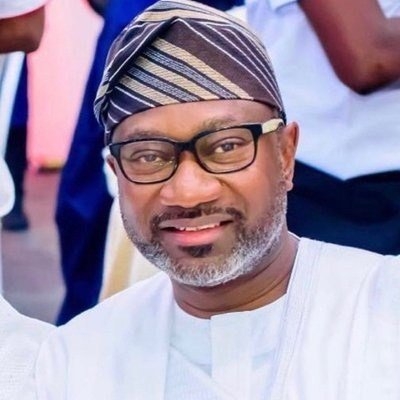
Troubled by what seemed to be an inaccurate statement of its bank balances, Seaforce Shipping Company Limited (‘Seaforce’) and other transactions related to Zenon and Luzon, through its chairman, Mr Femi Otedola, has raised concern, informed law enforcement officers and sent petitions to regulatory authorities over a series of ‘suspicious’ dealings in the company’s account with Zenith Bank Plc.
After scrutinising the company’s bank statements for roughly a decade and a half, Seaforce discovered that a steady stream of unknown debits and credits had been made to the company’s account with the bank since 2011. That is a long time to raise reconciliation matters it would appear, but given the nature of banking practices then, ignorance is a default for an aggrieved party.
The petition consequently paints a picture suggesting that over the last thirteen (13) years, several clandestine operations have been going on using Seaforce’s account without the approval of the company’s owner.

In the documents seen by Proshare, the bank credited and debited Seaforce’s account at irregular intervals in the last decade. The chairman of Seaforce Shipping Company alleged that the bank illegally used the company’s account for trading transactions that the company and himself knew nothing about. Against this background, Otedola has notified the Force Criminal Investigation Department (FCID) of the Nigeria Police Force.
Contacts at Zenith Bank have suggested that the matter was being amicably resolved between the bank and Otedola. However, whatever resolution is agreed between both parties, it begs some questions that should interest the market and regulators:
- How was it possible for Seaforce’s account to have been operated by the bank unknown to either the company or its chairman?
- What were the transactions that the debit and credit entries were made for?
- Who approved the loans charged against the account since Otedola claims that the company never applied for or received such a loan?
- Who signed the internal approval documents for the loans, as such sums would normally pass through a management credit committee (MCC) for approval of the board credit committee (BCC) for amounts running into billions of naira?
- Where were the bank’s internal auditors when the account was run without loan offer letters, acceptance letters, and collateral confirmation by either a legal or equitable mortgage interest in a fixed or movable asset of the customer?
- Since Otedola alleges that the last time the account was officially operated was in 2010, why was there no ‘post no debit’ (PND) notification placed on the account until reactivation, and indeed, why was the account not flagged as dormant?
The Challenge of Corporate Governance – A Loophole Too Many
Considering the recent events where a staffer in the digital banking operations kited over N50bn in illicit financial transactions over a period of two years, the Otedola/Zenith resolution requires more forensic interrogation to avert the spudding of a deluge of insider abuses.
This is where professional bodies need to pick up the ball and take more than a passing interest in the developments around corporate governance (C.IoD), banking practice (CIBN) and accounting integrity (ICAN) to mention a few.
Banks, like every company with a board of directors, must operate within the highest standards of corporate governance. Indeed, because of their unique economic positions, banks should not be allowed to run like trains without brakes.
Bank executives/directors should be held to the highest governance standards and must be made accountable for their actions or inactions. According to a bank executive who requested anonymity, ‘If you look at the board and regulatory tolerance of bad behaviour from the days of the erstwhile Skye Bank, NAL Merchant Bank, Citizens Bank, Oceanic Bank, the Old Access Bank (before Aig-Imokhuede and Wigwe), the Old UBA (before Tony Elumelu) and more recently Heritage Bank, you get an eery feeling that banks and their boards have a pathological learning problem. They serially fall in love with bad conduct and get routinely hurt’.
Indeed, observers have noted that the CIoD and the Central Bank of Nigeria (CBN) must get off their cushioned seats to roll up their sleeves and protect the Nigerian banking system from mortal damage by being proactive rather than reactive. In the view of the earlier banker, ‘Banks are on their way out, but banking will remain alive and well; therefore, regulators and professional bodies charged with the responsibility of monitoring and midwifing world-class professional banking conduct cannot be seen to doze off at the corporate cockpit as bank managers and their board of directors go on reckless and unprofessional operational joyrides.’
As Proshare 2019 Heritage Bank: The Game is Up report pointed out, the challenge of not keeping keen regulatory eyes on banking operations well document then, contributed to the bank’s recent collapse. Proshare made a few recommendations that the regulator ignored then, which may be necessary to resolve the operational challenges of a few more mid-sized local banks.
The concern is that corporate governance oversight has become more critical to bank profitability and sustainability. Internal control processes of banks must be therefore be best-in-class and reflect superior corporate governance ethos. The Seaforce Shipping Company Limited/Zenith Bank dispute was an avoidable one if internal governance processes aligned with the banking group’s strong corporate attributes. This is a lesson they can learn from, yet there is a history to this relationship that echoes loudly in the background.
The Otedola Bonus
The sentiment created by the media frenzy from this development is that without bank customers like Otedola, banks would railroad every customer into accepting whatever is posted to their accounts. Small retail customers have neither the skill, the resources, nor the time to take up such issues, thereby leaving a wide window of opportunity for banks to get ‘funky’ with customer balances. The Otedola instance puts customers and indeed, their financial officers on notice to monitor bank statements closely.
That said, even hypersensitive bank users like Otedola only recently (after thirteen years) discovered the challenges with his supposedly inactive account. The implication is that most bank customers would remain oblivious to problems of inaccuracy in their bank statements, except if such amounts were exceptionally large. For context, in Q1 2018, Zenith Bank had reportedly sent a letter to Seaforce’s Auditors suggesting that the company had a debt of only N2.28bn as against the N5bn reflected on the company’s bank statement. The disparity raises concerns about internal control gaps that led to this.
Illustration 2:
Surprisingly, on the day Zenith Bank sent the aforesaid letter to Seaforce’s Auditors, a debit balance of N2.9bn had been posted. The inconsistency in the debit figures across letters, bank statements, and balances raises concerns about internal audit thoroughness and consistency.
Otedola’s bell-ringing complaint calls on the banking regulator to insist on a comprehensive review of bank loan asset status across the industry; to help standardise the data accuracy of statements for the benefit of all bank customers who were hitherto tardy about their account records.
The Resolution Option – Lessons Learned
Despite the tussle between Seaforce Shipping Company Limited/Femi Otedola and Zenith Bank, the two parties’ inclination towards an uncomplicated and undramatic resolution of the problem is commendable.
The six issues identified for which reconciliation is ongoing include the reconciliation of Zenon Group’s stock position, the N205m wrongful debit on Zenon’s account, Seaforce’s alleged indebtedness of N4bn to Zenith Bank, mandate to move Luzon’s 370,000 units of Zenith Bank shares to MBC securities, pre-AMCON letters of credit obligation, and Zenon house moved to AMCON.
Of these issues, only three appear headed towards some resolution to date, wherein Zenith Bank conceded to refunding the N205m wrongful debit with the compounded accrued interest to date, an understanding that Zenon Group’s Stock position was 1,207,845,020 units as of March 26, 2012; and the mandate to move Luzon’s 370,000 units of Zenith Bank shares to MBS securities.
The issue on Luzon’s shares in Zenith Bank was resolved with a clear point that MBC Securities were stockbrokers for AMCON, who received four certificates of 370,000 units each for four companies in the Zenon Group making 1,480,000 units of Zenith shares taken over by AMCON from UBA Plc as part of the settlement terms then.
Meanwhile, it is worthwhile to note that the equity price of Zenith shares on the Nigerian Exchange Limited (NGX) has witnessed a slightly bullish climb over the last decade and this valuation could impact resolution on the share issue (see Chart 1 below)
Chart 1:
Closing Thoughts
While reconciliation remains ongoing, it is equally possible that, where resolution efforts breakdown, a recourse to the courts may become inevitable; at a time when professional conduct in the banking industry is under the microscope.
The Otedola/Zenith Bank disagreement is an opportunity for institutional learning – to improve banking operations and develop a framework that limits the damage that could arise from operational or guidance failures. Rather than seeing the incident as a battlefield of competing egos, it should be seen as an opportunity for the financial system to improve.
For feedback and further information, kindly contact research@proshare.co
Subscribe to our market intelligence notes for updates. Thank you




